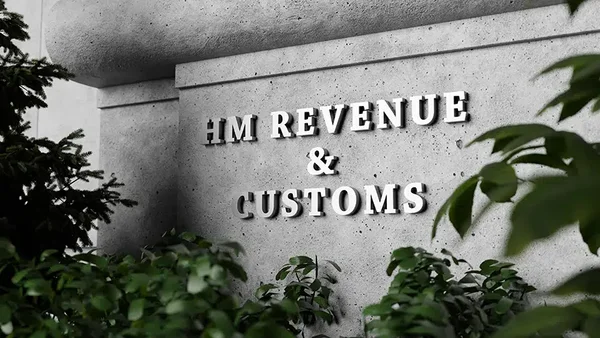Now, let's unpack this
Tired of handing over too much of your investment profits to HMRC?
We've researched 7 Ways To Maximise Your Capital Gains Allowance so you don't have to!
From strategic selling to timing tricks, these proven methods could save you thousands in tax.
But don't worry if this sounds complex - we've got all the insider tips ready to share.
Come on, let's slash that tax bill together!

1. Understand Your Annual Exemption: The Foundation of Tax-Efficient Investing
We've seen countless clients grapple with the capital gains tax (CGT) allowance.
Let's simplify it.
For 2024/2025, the annual tax-free allowance for capital gains, also known as the CGT annual exempt amount, is £3,000. It's your threshold before CGT kicks in.
Any taxable gain over this is subject to capital gains tax rates, which vary based on your income. Whether you're a basic rate taxpayer or higher, understanding these tax rules is crucial.
Tracking gains throughout the tax year is essential, especially for assets like residential property or an investment fund. We'll help you monitor your gains effortlessly, ensuring you know when you might need to pay CGT.
A common misconception? That unused allowance carries over. Sadly, it doesn't.
Use it or lose it, as we say in the tax world. Remember, understanding your annual exemption is key to minimising your tax bill, whether it's from capital gains or rental income. It's the first step in maximising your CGT efficiency.
2. Strategic Asset Disposal: Timing Is Everything
We've seen timing transform capital gains strategies. Spreading disposals across tax years can slash tax bills by thousands.
Our tools help you to visualise this complexity, making it easier to spot opportunities.
Calculating the optimal sell time isn't just number-crunching, it's about understanding your entire financial landscape.
Balancing capital gains with your overall income is crucial. We've seen clients unknowingly push into higher tax brackets by overlooking this delicate balance.
We helped a client save over £6,000 in capital gains tax by spreading a large investment sale over two tax years.
Remember, in the world of capital gains, patience isn't just a virtue - it's a valuable tax strategy.


3. Utilise Spousal Transfer for Tax Efficiency
We've worked with married couples and civil partners to double their capital gains allowance through smart asset transfers.
You can transfer assets between partners without triggering capital gains tax, effectively doubling your allowance.
It's like getting two slices of pie for the price of one!
The process is straightforward, but watch out for pitfalls.
We've seen clients stumble by not properly documenting transfers or mistiming them.
Remember, it must be a genuine gift - no strings attached.
Here's a success story: A client with a large investment portfolio saved over £3,000 in capital gains tax by transferring assets to his spouse before selling.
That's the power of spousal transfer. But beware - this strategy isn't foolproof and needs careful planning.
4. Invest in Tax-Efficient Vehicles: ISAs and Pensions
Our clients transform their tax situation with ISAs and pensions.
These are tax-free havens for investments. ISAs shelter up to £20,000 per tax year from capital gains tax - a VIP pass to tax-efficient investing!
Pensions offer tax relief on contributions and shield investments from capital gains tax as they grow.
We've helped many transfer existing investments into these wrappers, saving thousands in potential tax bills.
Consider your investment goals and time horizon. ISAs offer flexibility, pensions excel for long-term planning. Many clients benefit from both.
Our experience shows maximising these tax-efficient vehicles is key to optimising your tax position. Remember, it's not just about earning - it's about keeping!


5. Offset Gains with Losses: The Art of Tax Loss Harvesting
Tax loss harvesting is a powerful strategy often overlooked. You can use capital losses to offset capital gains, potentially reducing your tax bill. We've seen clients save thousands by strategically realising losses.
Identifying losses effectively requires careful planning. We help review portfolios regularly, considering the wash sale rule and timing.
Remember, you can carry forward unused losses to future tax years, offering flexibility in tax planning.
While rewarding, tax loss harvesting isn't risk-free. We always stress that tax considerations shouldn't solely drive investment decisions.
Balancing tax efficiency with your overall investment strategy is crucial. When done right, it's a valuable tool in your tax-saving arsenal.
6. Leverage Business Asset Disposal Relief
In our experience, Business Asset Disposal Relief (BADR) works wonders for entrepreneurs.
It allows qualifying business owners to pay just 10% Capital Gains Tax on disposals of certain business assets, up to a £1 million lifetime limit.
Qualifying can be tricky. We've guided many through the process, ensuring they meet the 5% ownership and 2-year holding criteria for their chargeable assets.
The tax savings can be substantial - we recently helped a client save over £90,000, far exceeding their basic rate band.
With the lifetime limit reduced from £10 million to £1 million, careful planning is crucial. We're advising clients to consider using BADR while it's available, potentially looking at ways to transfer assets strategically.
In this changing tax landscape, understanding your CGT allowance and relief options is key to minimising your tax liability.


7. Consider Charitable Giving to Reduce Capital Gains
Charitable giving can significantly reduce your tax bill.
We've helped many higher rate taxpayers lower their capital gains tax by donating appreciated assets to charity.
Gifting shares or other assets to charity is often simpler than you'd think.
You can claim tax relief on the market value while avoiding capital gains tax on the chargeable gain. It's a win-win, and any unused relief can be carried forward.
We've seen impressive results. One client donated shares worth £50,000, saving £14,000 in capital gains tax and reducing their total income for the tax return by £22,500. That's £36,500 saved in the same year, while supporting a good cause.
Remember, charitable donations are typically exempt from CGT, making this an effective tax planning tool.
Final Thoughts
At Pie Tax, we've seen maximising your capital gains allowance transform financial futures. It's not just about reducing your tax bill - it's about making smarter decisions for long-term wealth and managing your taxable income effectively.
We've guided many clients through these strategies, helping them save money and develop a more sophisticated approach to managing investments, including residential property.
Every situation is unique, which is why we recommend personalised advice. Our tax professionals are here to help you navigate the world of capital gains and taxable gains throughout the tax year.
We can help you understand how your capital gains interact with your personal allowance and other aspects of your finances, ensuring you're making the most of every opportunity to grow your wealth.











